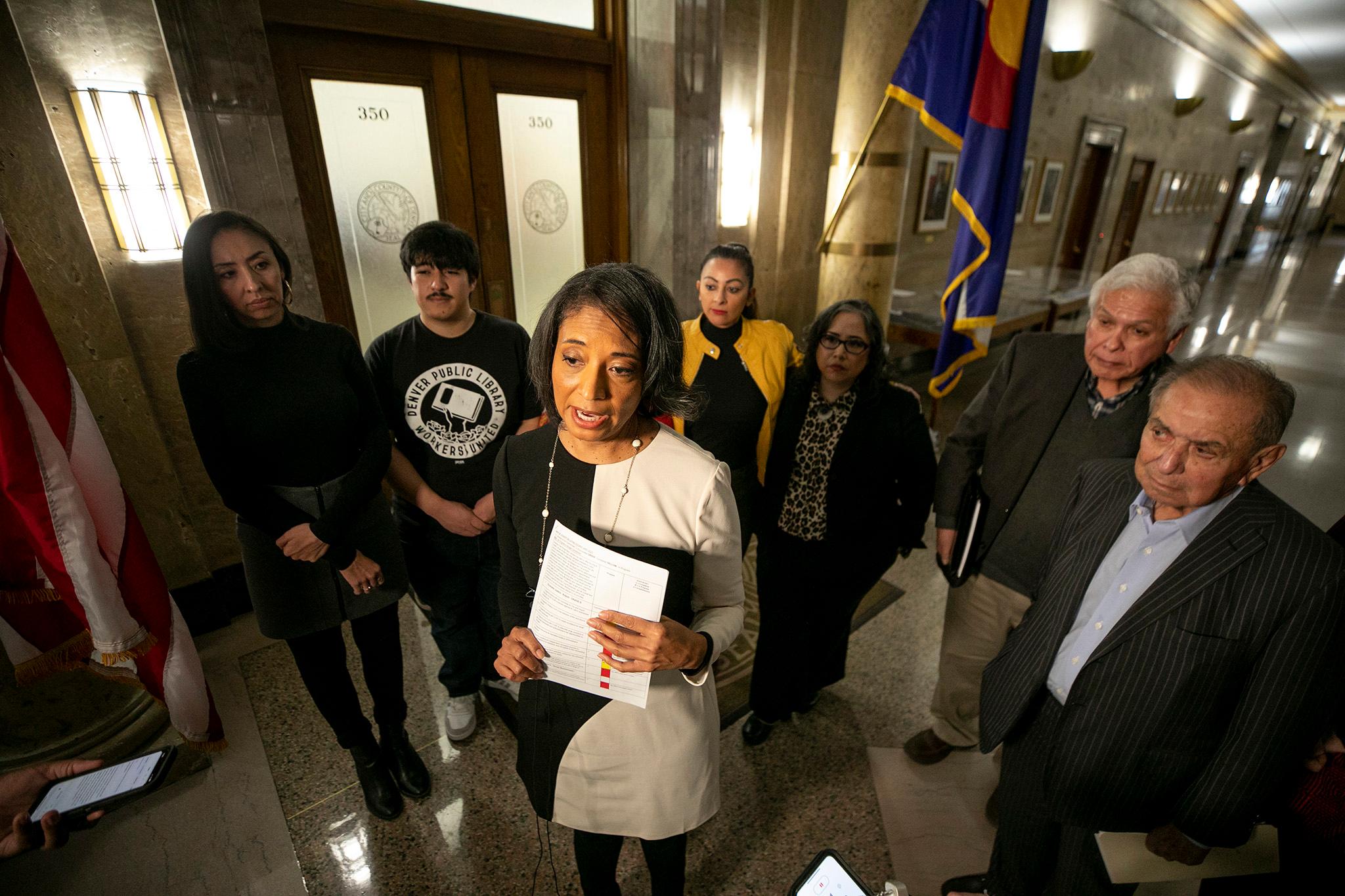As elected CEO of the city, the Denver mayor is in charge of hiring and firing department heads.
More than ribbon cutting, glad handing and getting grilled at community meetings, that's what the executive branch of municipal government does. And a perk of being a new Denver mayor is to pick fresh department heads and shake things up -- or alternately, to keep the former mayor's picks and pay homage to the predecessor.
Many mayors come into office with big ideas of who they want in their cabinets. The hires can be legacy-defining decisions, and they are often made fast.
Not so with Mike Johnston who said, throughout the campaign, he'd made no decisions about who would lead the city's biggest departments and opened up a city-wide application process that anyone could apply to. Apparently, that was true.
Denver's first new mayor in 12 years has taken his time hiring his cabinet and the heads of other major departments, including positions he's required to fill by city charter. And in 15 instances, he decided to make no changes from three-term Mayor Michael Hancock's appointees.
Month after month, Denverites waited to see who would lead the biggest agencies. And month after month, the first new administration in 12 years offered the same message: Johnston said he's taking his time to understand the departments and make the best picks possible.
Making fresh hires can take months. But some jobs -- police and fire chiefs and sheriff -- didn't have competitive hiring processes at all.
Johnston could have radically shifted who's running the city. Instead he's kept many of former Mayor Michael Hancock's appointees and allies around.
For Hancock's backers, that's a coup. For critics, it's a curse.
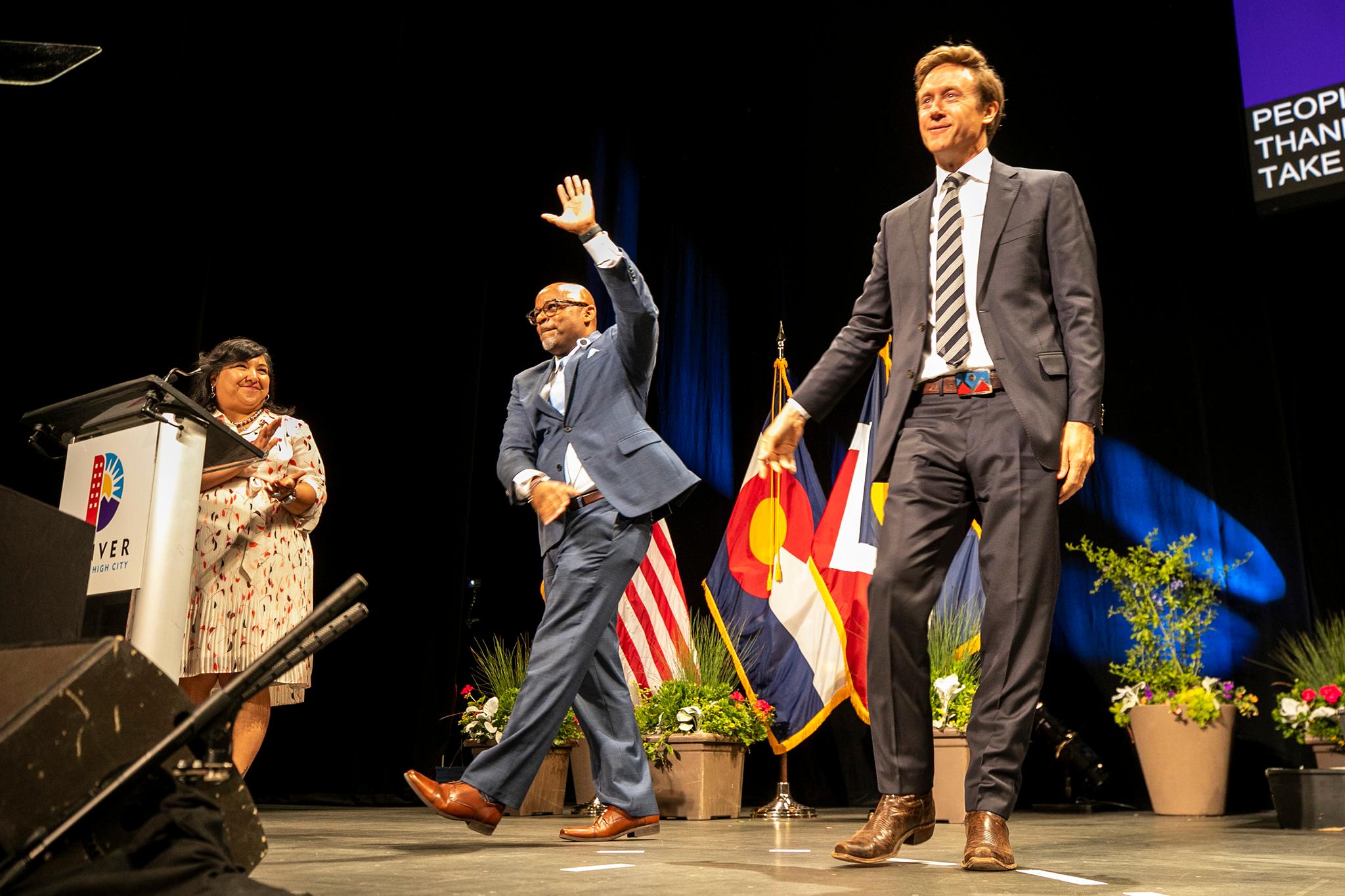
So who are the Hancock holdovers?
While Johnston has focused his first six months on bringing 1,000 people from the streets indoors, he's not offered much new in the way of public safety, policing and jails. His decision to keep Hancock's appointees in power reflects that.
That Director of Public Safety Armando Saldate, Police Chief Ron Thomas, Fire Chief Desmond Fulton and Sheriff Elias Diggins were all reappointed by the mayor without a competitive hiring process irked some community leaders, including former mayoral candidate Lisa Calderón.
"I've heard from women across public safety agencies who wanted a fair chance to compete but are now stuck with the same male leaders who take credit for their work while publicly claiming how much they do for women," she said in December. "It's another example of mediocre men failing up and exceptional women having to work harder for opportunities that never come."
The Mayor's Office denied the charges of sexism.
"All four public safety leaders are men of color who have extensive experience and personal expertise in leading and supporting a diverse workforce," Johnston's spokesperson Jordan Fuja wrote at the time. "The Mayor's appointees are made up of 55% people of color and for the first time in Denver's history, his senior leadership team is made up of all women."
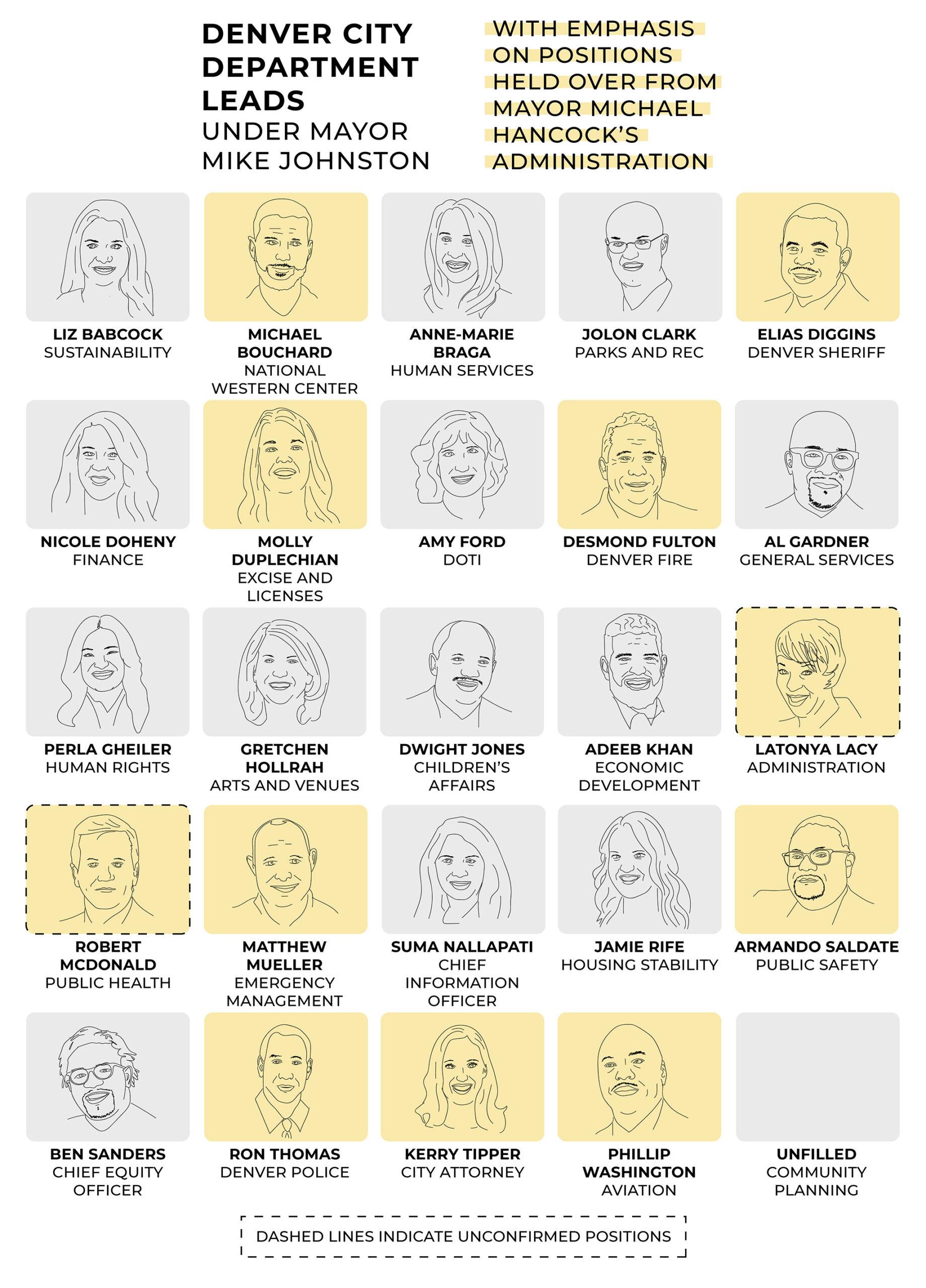
The City Attorney's office, the legal body that represents both the Mayor's Office and City Council and has oversized power compared to other city attorney's that don't represent both the executive and legislative brand, has Hancock-era appointees still in place. Those include City Attorney Kerry Tipper and Deputy City Attorney Katie McLaughlin.
Molly Duplechian, the executive director of Excise and License, the department that handles business and rental permitting, marijuana and liquor store regulation and more, is still on the job.
So is Matthew Mueller, the executive director of the Office of Emergency Management, the agency, in part, coordinating response to the arrival of tens of thousands of migrants and the homelessness state of emergency.
Phil Washington will continue at the helm of Denver International Airport after withdrawing his nomination to lead the Federal Aviation Administration last year. Meanwhile, Michael Bouchard will stay on as the executive director of the National Western Center.
The mayor's office itself includes quite a few familiar faces.
While the communications team has changed, Deputy Chief Projects Officers Shannon Gifford and Jennifer Welborn and Chief Projects Officer Joshua Laipply and Executive Director of Administration LaTonya Lacy all survived the transition.
The man Hancock dubbed his Most Valuable Player, Deputy Chief of Staff Evan Dryer, bridged administrations and continues to charge toward crises few others wanted to face.
While politicians like Hancock and Johnston put shine on the city's policy, Dreyer, a former Pulitzer Prize-winning journalist, says he works in the "gray," where the action taken isn't necessarily the most popular.
Staying on in his role, Dryer has anchored the Johnston administration in Hancock-era decorum and communication strategies and has ensured that the new mayor, whose experience was largely in education, state politics and philanthropic work, knew how things worked.
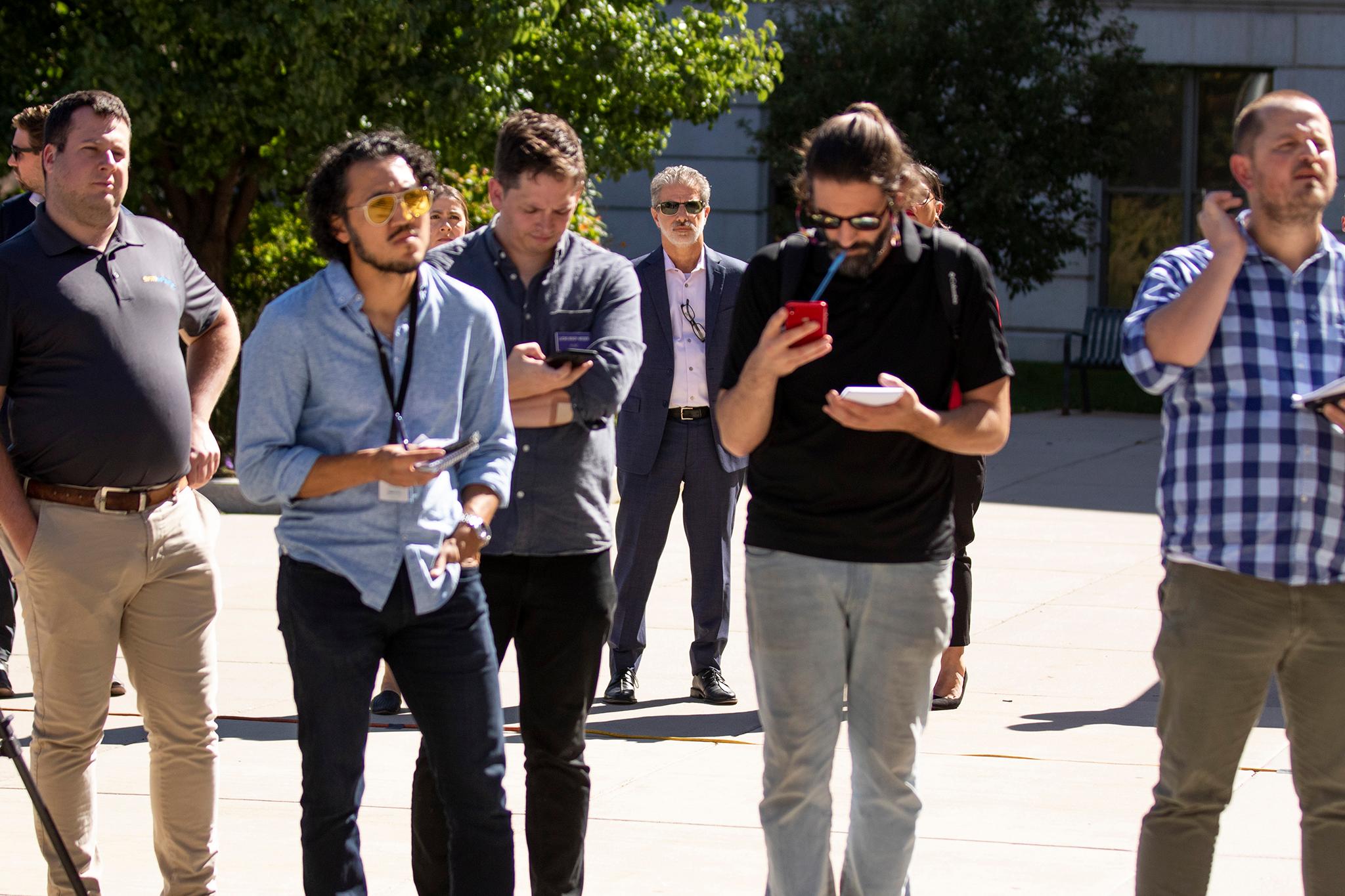
Johnston did appoint some high-profile fresh faces, but even those were often close collaborators with Hancock's administration.
After Allegra "Happy" Haynes retired as the head of Parks and Recreation, the new mayor brought on former City Councilmember Jolon Clark -- a frequent collaborator with the Hancock administration.
The Department of Housing Stability has gone through two heads in Johnston's time. Now the agency is headed by Jamie Rife, a close collaborator with the Hancock administration through her former job as the director of the Metro Denver Homeless Initiative, the body that manages data on homelessness and manages the regional point-in-time count of unsheltered homelessness for the Department of Housing and Urban Development.
Hancock-era Arts and Venues director Ginger White was pushed out by Johnston and replaced by appointee, Gretchen Hollrah, who is doing double duty running the city's cultural facilities and programming and serving as the deputy chief operating officer.
Johnston appointed Amy Ford to take the reins from former Department of Transportation and Infrastructure head Adam Phipps.
In perhaps his most ambitious and aggressive hiring move, he brought on at least seven mayoral appointees to manage homelessness resolution from his office, essentially reinventing swaths of what the Department of Housing Stability was set up to do.
Two major departments still don't have permanent heads.
Hancock's Bob McDonald is serving as the acting director of the Department of Public Health and Environment, while Johnston considers his pick.
Hancock's Community Planning and Development's head Laura Aldrete left, and she has yet to be replaced.
For Hancock supporters, like his longtime Chief of Staff Alan Salazar, continuity between the Hancock and Johnston administration is smart -- and also a compliment.
While Johnston's critics, including Calderón, have accused him of taking too long to hire, Salazar says that being deliberative is a good thing.
"I thought it was really very smart to get his arms around the agencies and decide what kind of leadership was needed," said Salazar, who is impressed with the appointments.
Over the past half a year, Salazar's kept a tally to see which of his old colleagues are part of the administration -- 15 in total. He's proud that so many continue to serve the city.
"That's probably more than you usually find in a new administration, but I thought it was very refreshing for the new mayor to take that attitude," Salazar said. "It seemed to me he was sending a message that we're gonna look for the very best people, and we're not going to play political games with the first 100 days."
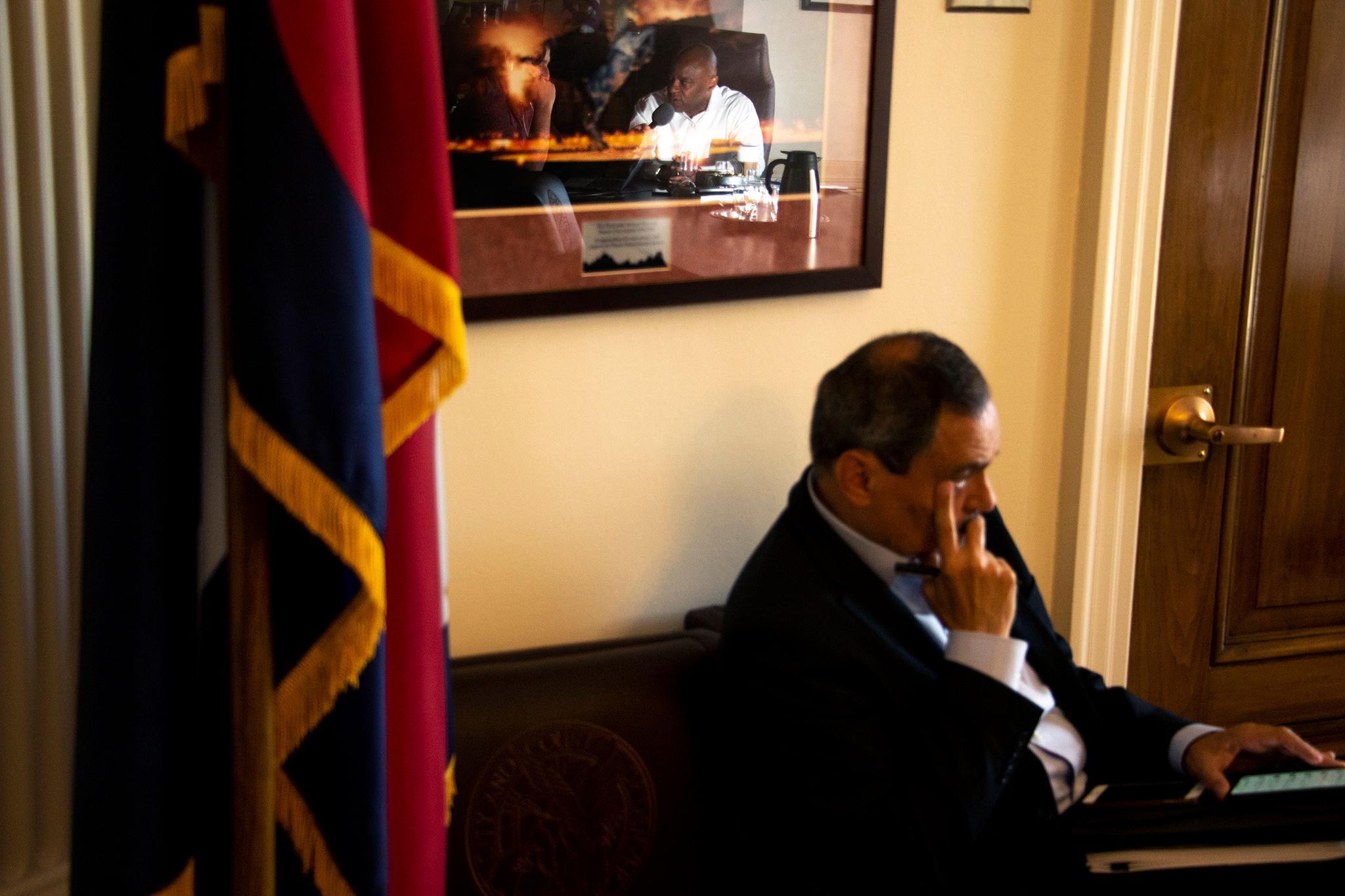
Calderón, on the other hand, is troubled by how the appointments have gone.
She views the lag in appointments as a sign that Johnston came into office without a clue about the basics of city government.
"It tells you that he truly had no plan except in the mayor's race," she said, noting other candidates including herself, who had worked for the city, already had people in mind. "Johnston fundamentally had no real idea about how this city worked."
And she's disheartened to see so many Hancock holdovers in Johnston's administration.
"When you have the same people who were used to doing things under Hancock in a groupthink dynamic now with Johnston, you don't get innovative thinkers or a forward moving city," she said. "You just get more of the same."
